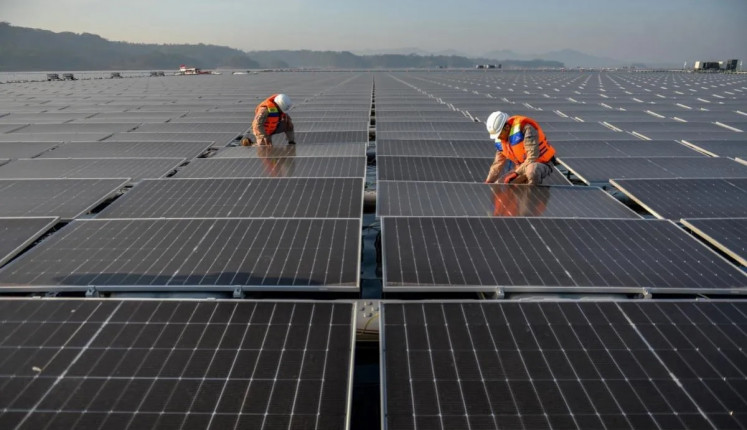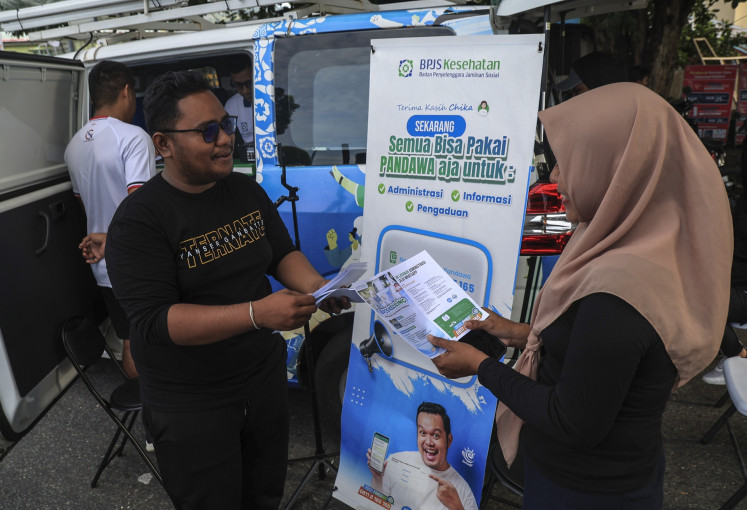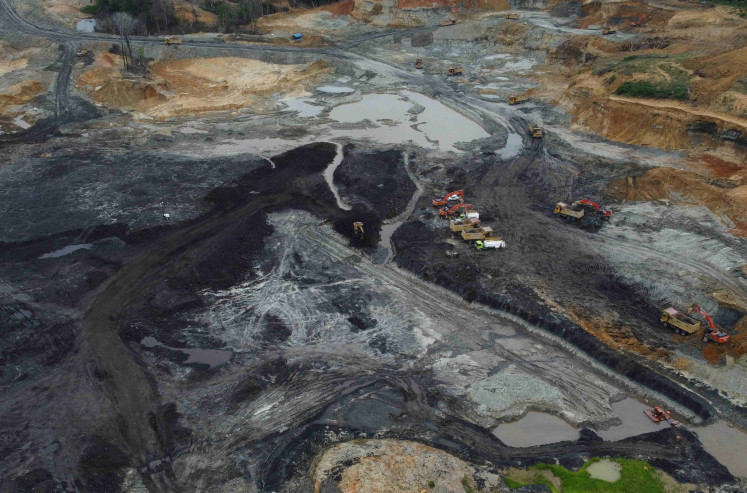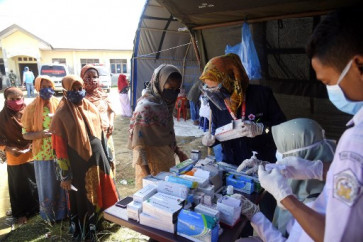Popular Reads
Top Results
Can't find what you're looking for?
View all search resultsPopular Reads
Top Results
Can't find what you're looking for?
View all search resultsAceh shows spirit needed to solve Rohingya crisis
The transborder implications of the Rohingya crisis and its detrimental effect on the credibility of ASEAN highlight the need for a region-wide response, sooner rather than later. While Indonesia and other countries’ recent individual approach to the refugee crisis should be applauded, it is important to make sure that it does not create a pull factor. Among the immediate concerns are to seek and rescue hundreds of Rohingya refugees believed to still be stranded at sea as well as to improve the conditions at the refugee camps.
Change text size
Gift Premium Articles
to Anyone
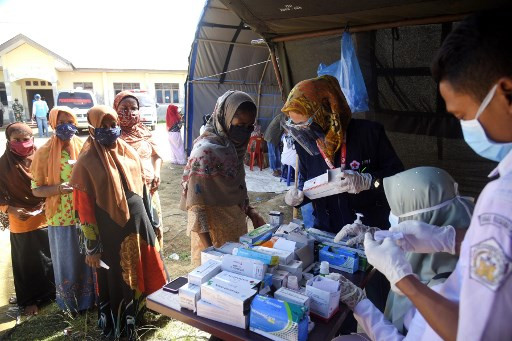 This picture taken on Sept. 9, 2020 shows a group of Rohingya women queueing up for medical check-ups at a transit camp after nearly 300 Rohingya migrants came ashore on the beach in Lhokseumawe on the northern coast of Indonesia's Sumatra island. When hundreds of Rohingya paid traffickers to escape their squalid refugee camp in Bangladesh earlier this year they were promised they were just a week away from a new life in Malaysia. Instead, the group of mostly women and children suffered more than 200 days of terror on the high sea until they landed this week on Indonesia's northern coast. (AFP/Rahmat Mirza)
This picture taken on Sept. 9, 2020 shows a group of Rohingya women queueing up for medical check-ups at a transit camp after nearly 300 Rohingya migrants came ashore on the beach in Lhokseumawe on the northern coast of Indonesia's Sumatra island. When hundreds of Rohingya paid traffickers to escape their squalid refugee camp in Bangladesh earlier this year they were promised they were just a week away from a new life in Malaysia. Instead, the group of mostly women and children suffered more than 200 days of terror on the high sea until they landed this week on Indonesia's northern coast. (AFP/Rahmat Mirza)
O
n Sept. 7, 2020, Ujong Blang beach in Lhokseumawe, Aceh, witnessed humanity’s candid showcase. Defying orders from local authorities, villagers pulled ashore a wooden boat packed by almost 300 Rohingya refugees, most of them women and children. It was believed that the boat had been stranded at sea for six months before it finally landed on Ujong Blang.
In stark contrast to the reluctance of the governments in the region to deal with the refugee problem, people of Aceh decided to take the matter to their own hands.
It was not the first time the people of Aceh demonstrated their solidarity. Three months ago, another boat was pulled after being spotted by local fishermen from Lancok village, just a few kilometers away from Ujong Blang. Ninety-nine Rohingya refugees, 30 of them children, in a dire condition, were rescued.
Images of villagers arguing with the local authorities who were ready to push the boat out of Indonesian waters spread in the media. The authorities eventually yielded, and the refugees were taken to a nearby facility where they were taken care of and properly registered.
For decades, the Rohingya community have had only the worst options before them. In their home country, they are systematically discriminated against and denied basic rights. In 2017, a disproportionate response from the Myanmar military to attacks by a Rohingya armed group drove over 700,000 Rohingya people out of Rakhine State and forced them to take shelter in the neighboring Bangladesh, joining many who had already been driven there.
The government of Myanmar denied extensive evidence of atrocities, refused to allow independent investigators access to Rakhine State and punished local journalists for reporting on military abuses. In 2012, deadly sectarian violence in Rakhine State created urgent humanitarian needs for both Rohingya and Kaman communities as more than 100,000 people were displaced from their homes.
Living in makeshift refugee camps, however, is not necessarily a better alternative for the Rohingyas. Conditions in the camps are dire with inadequate access to food, water and medication giving rise to diseases.




